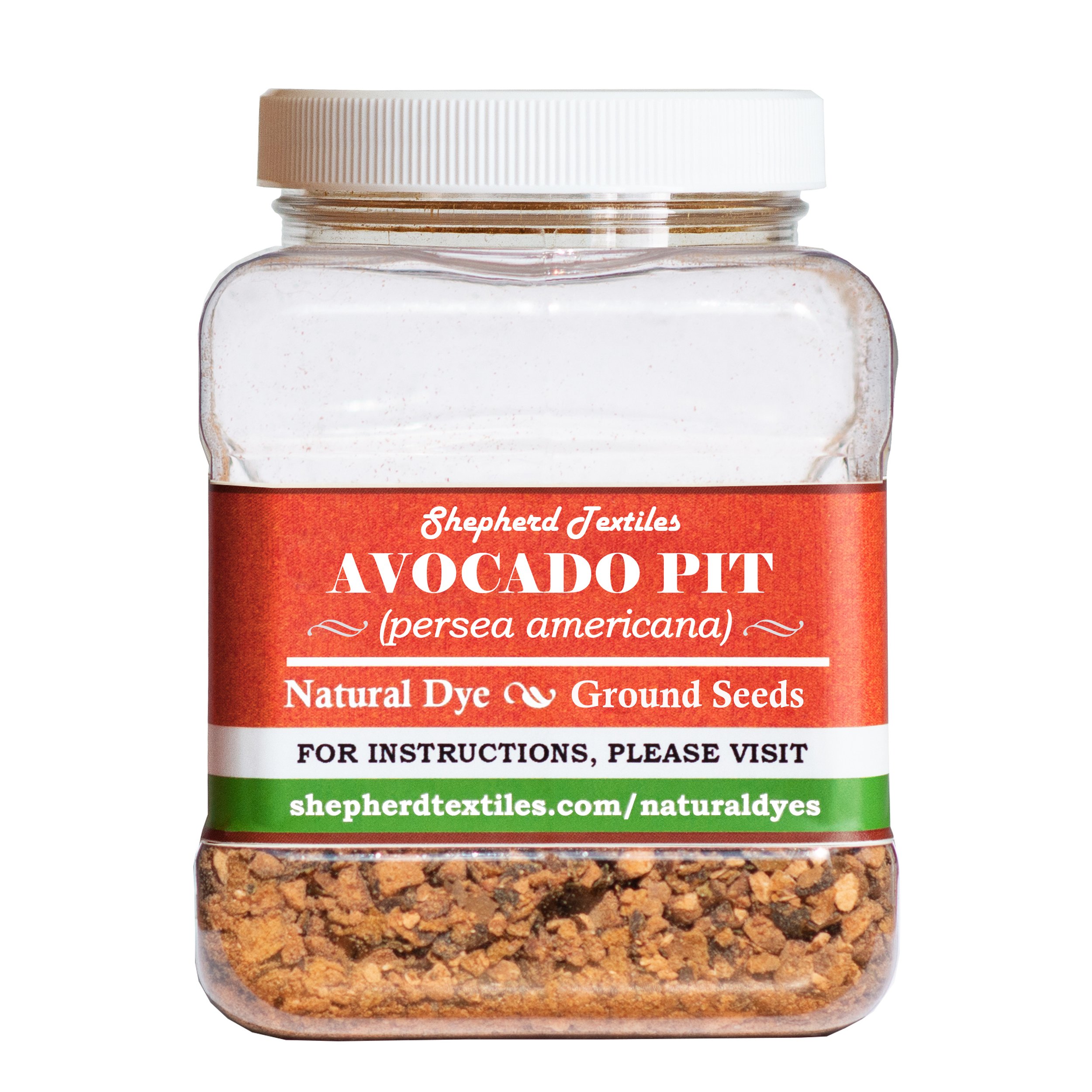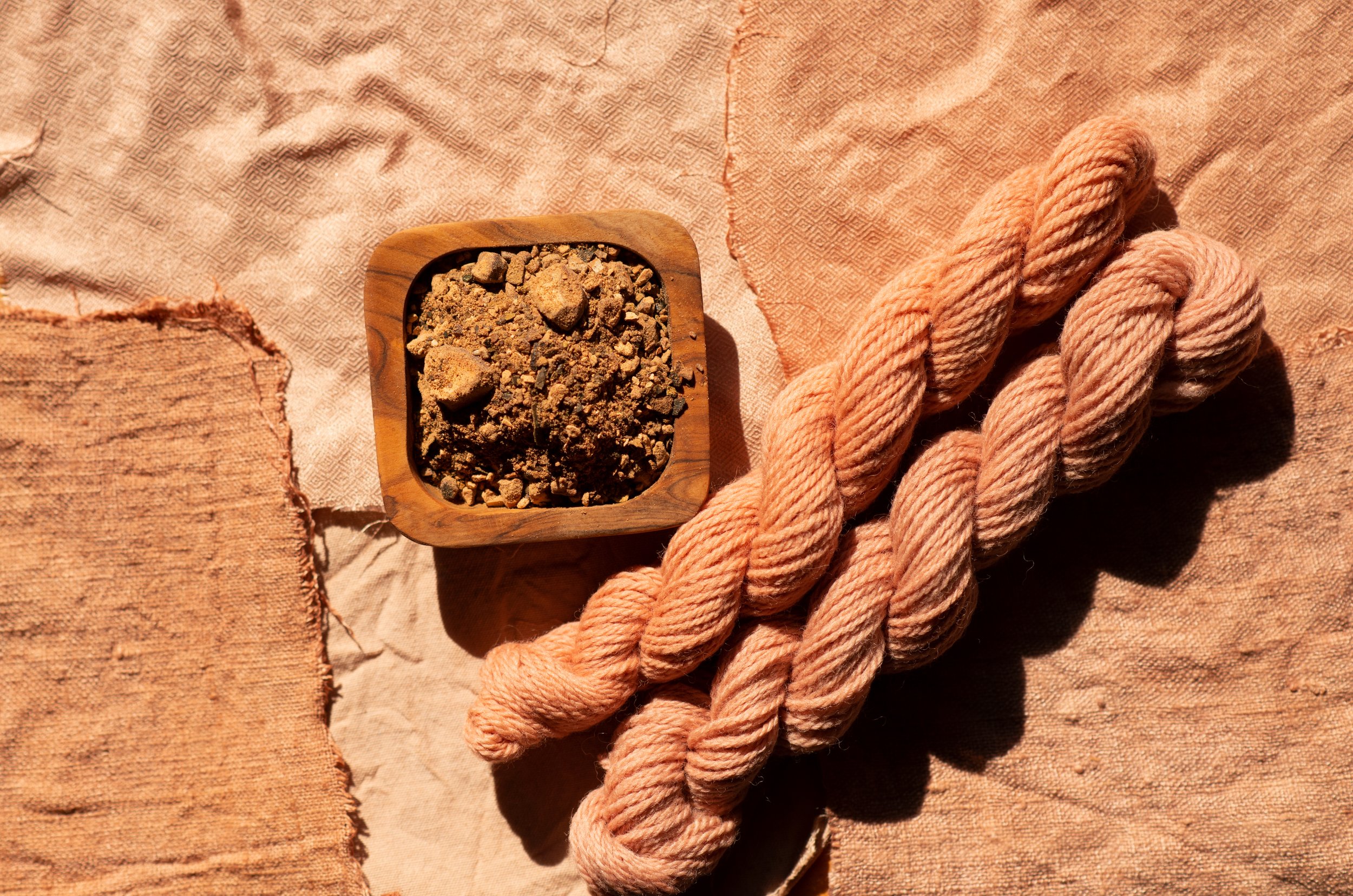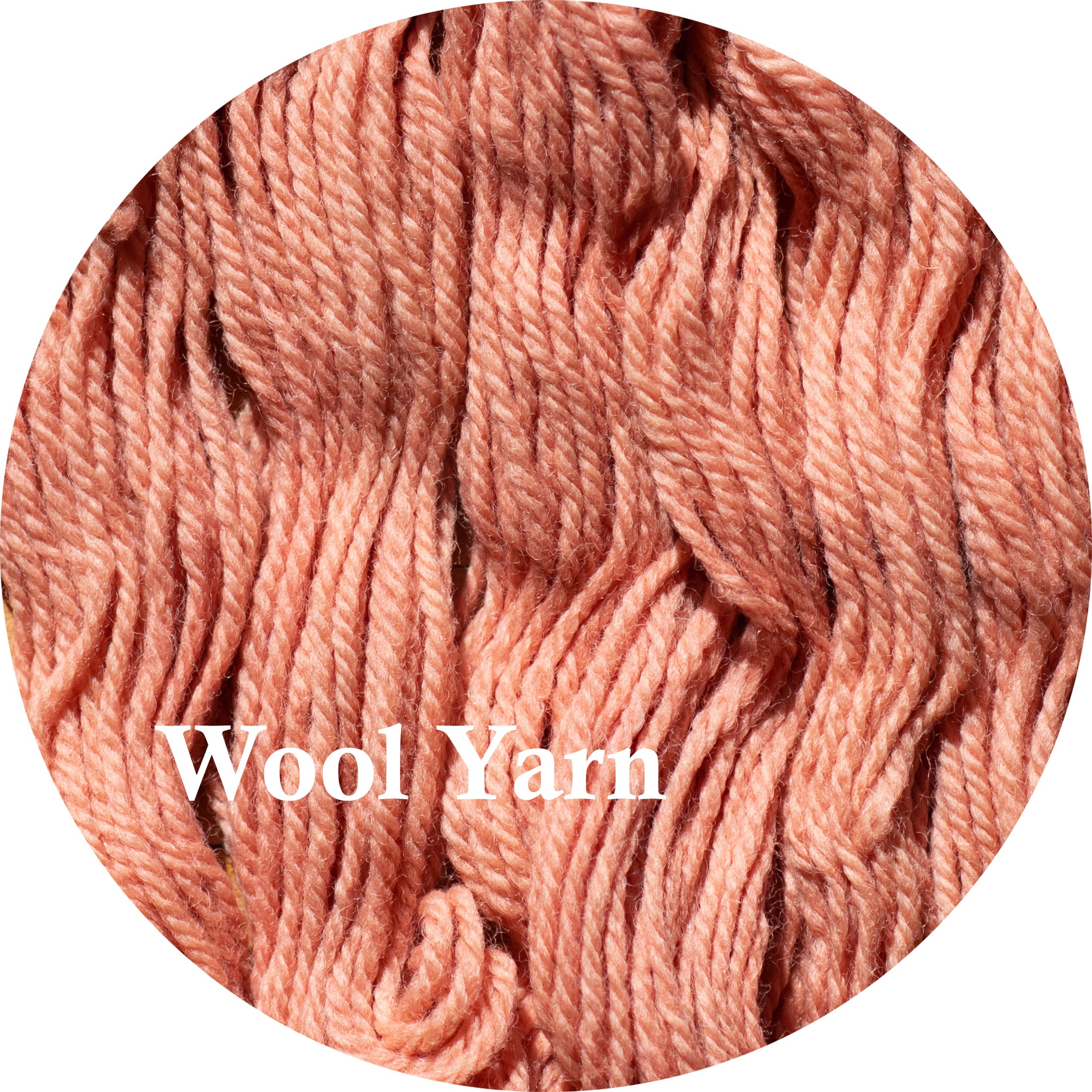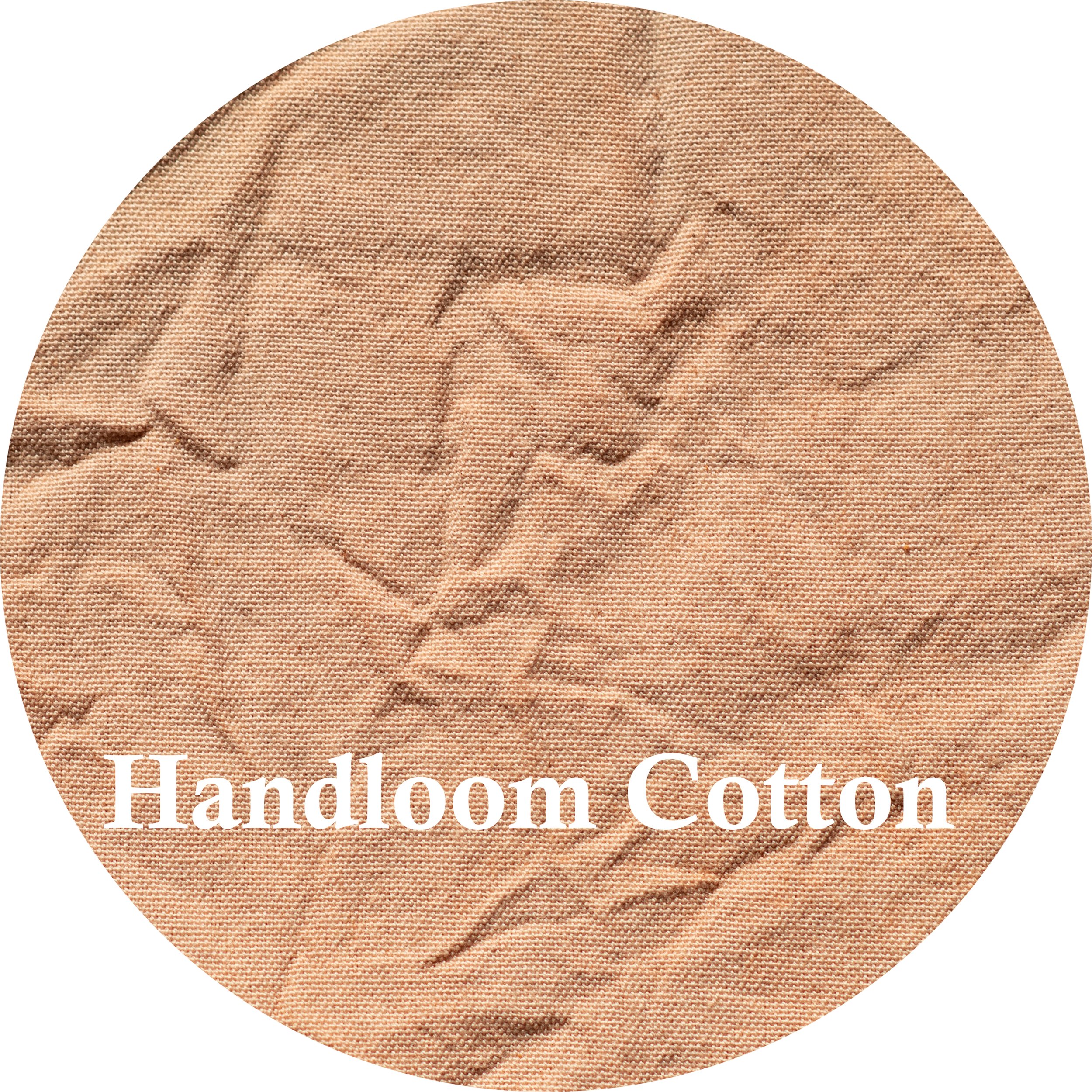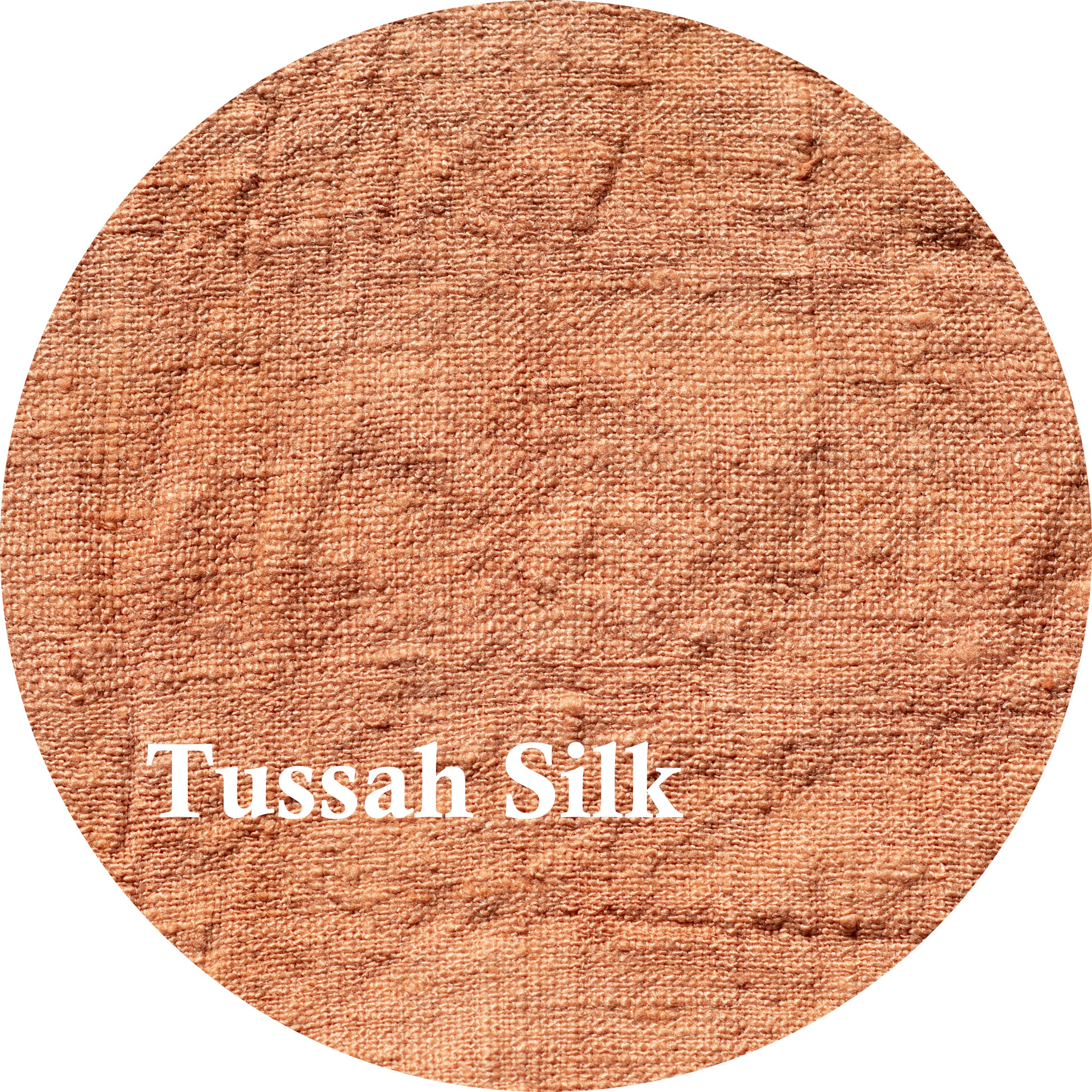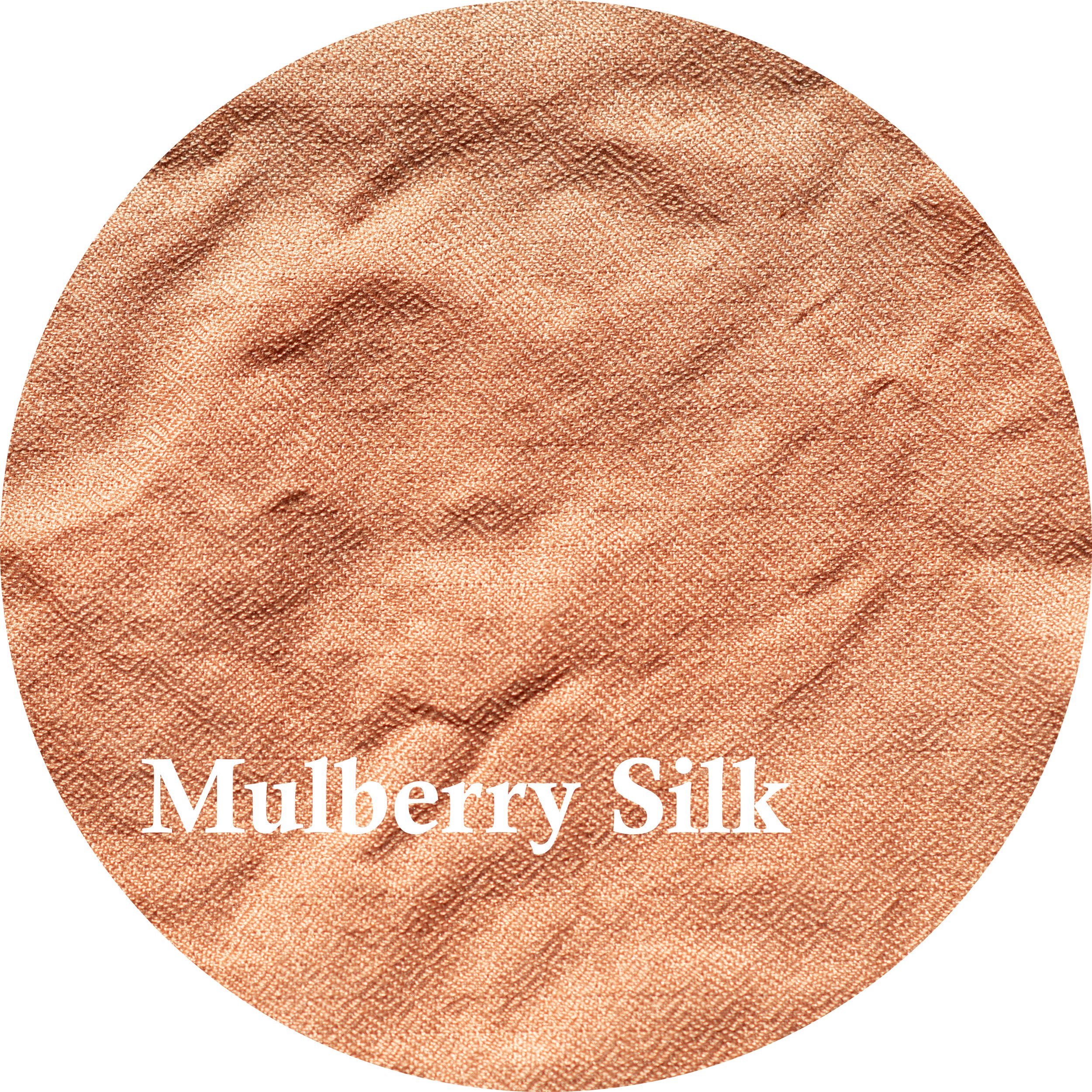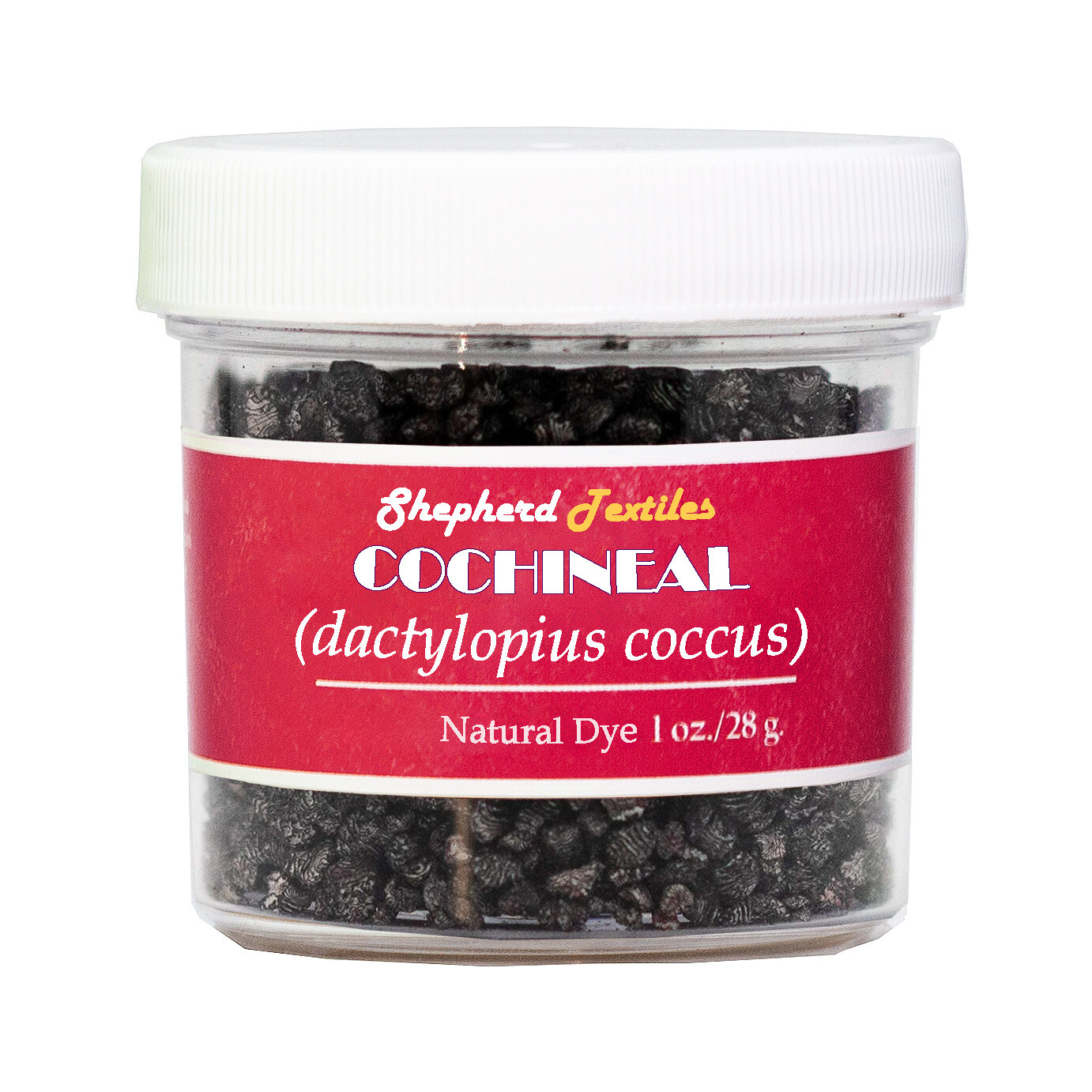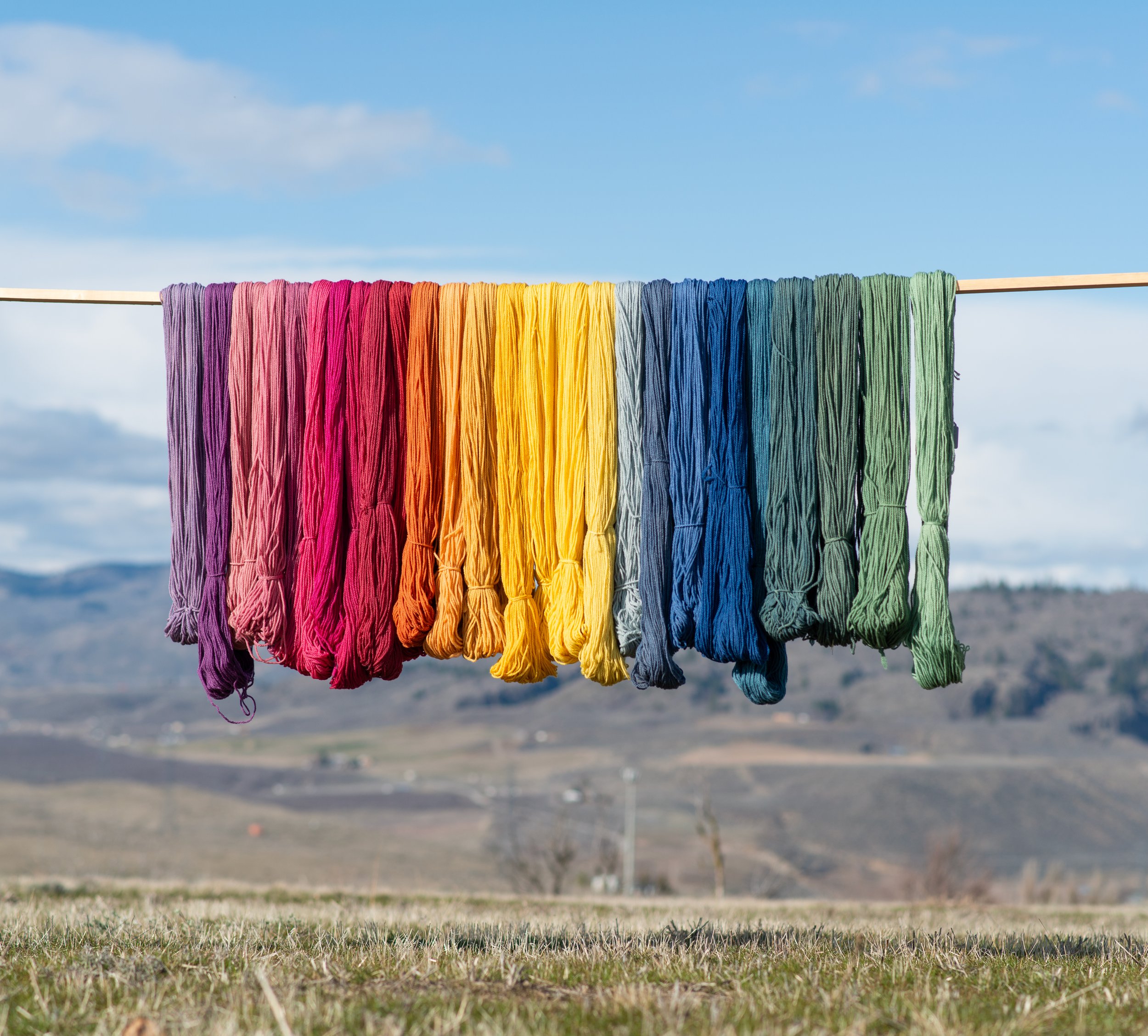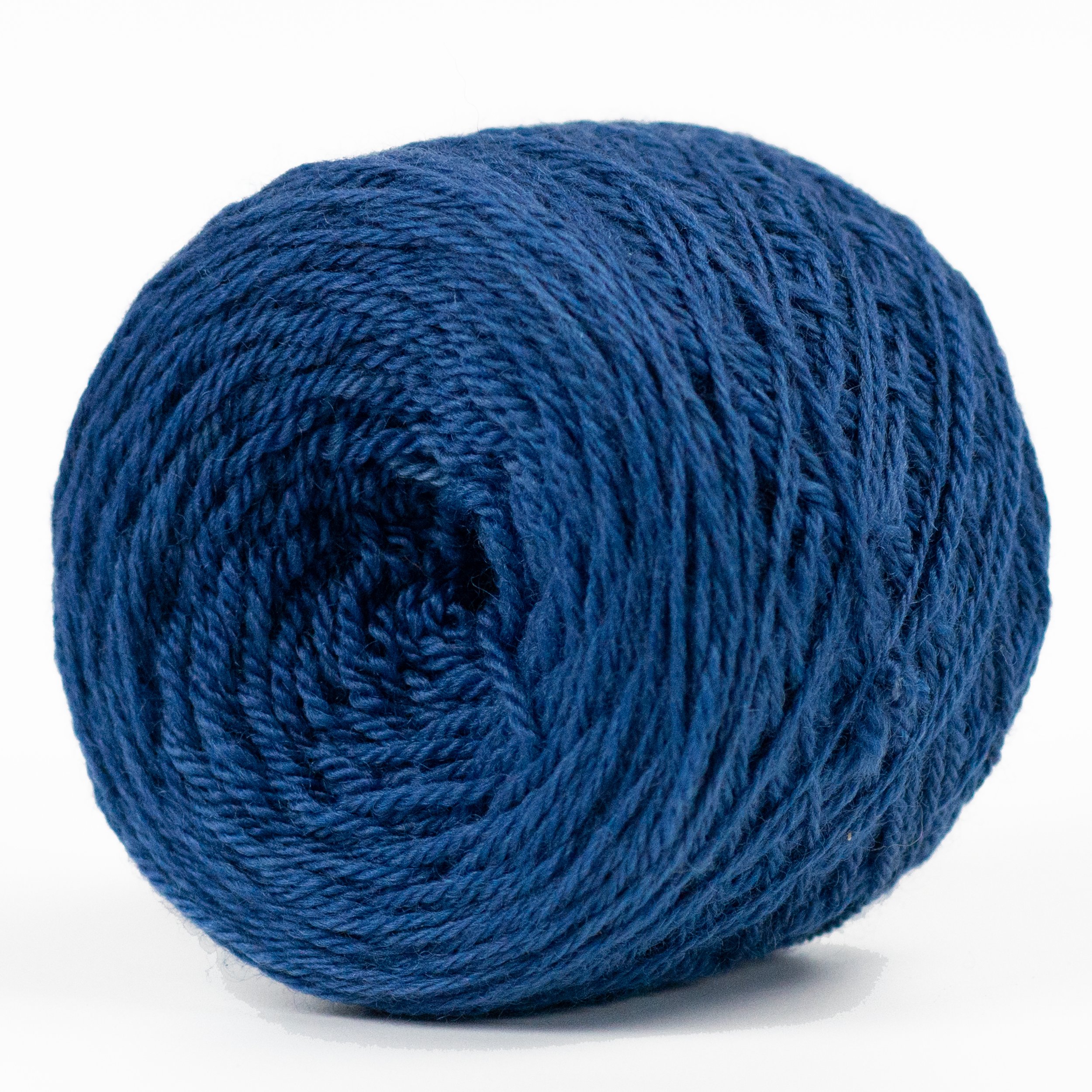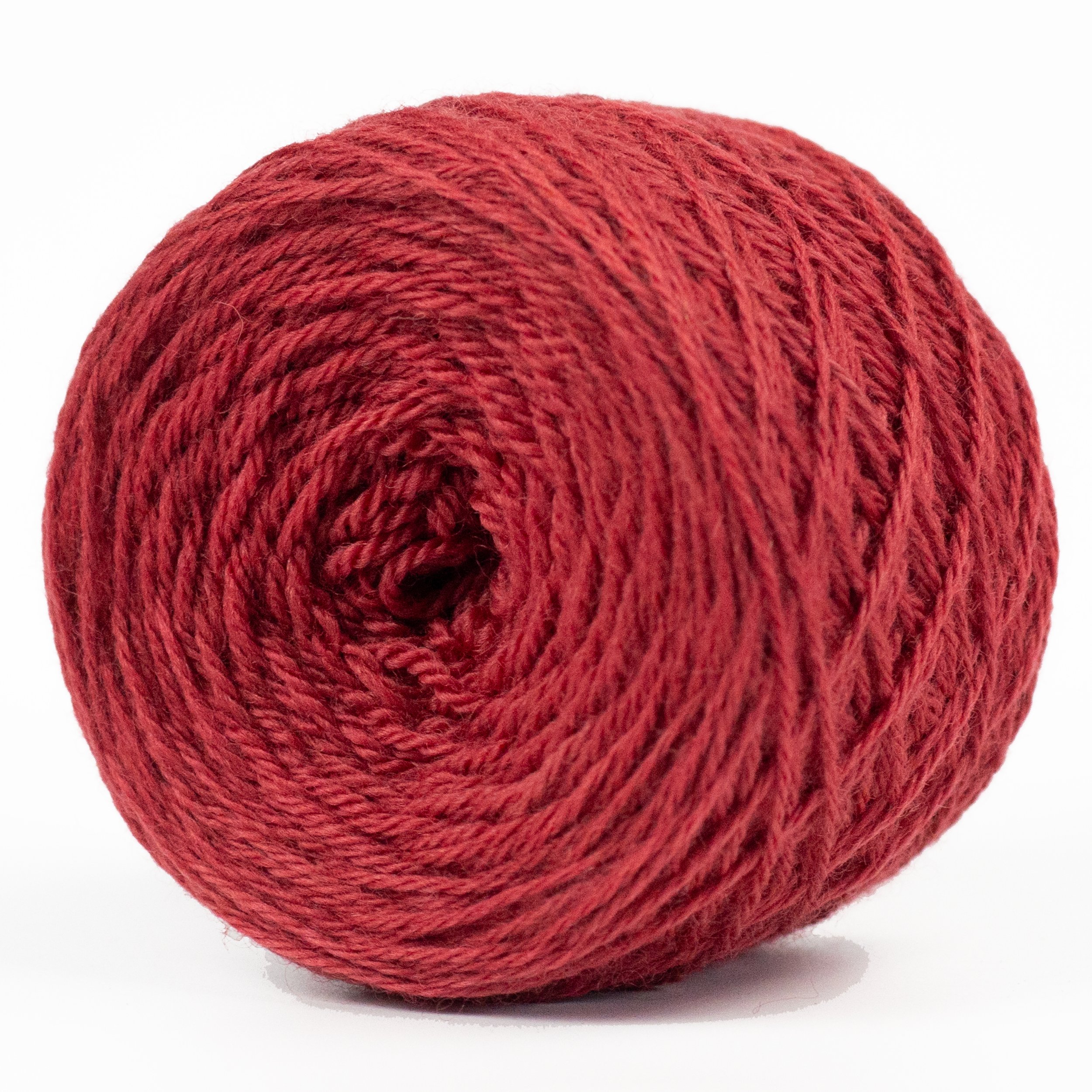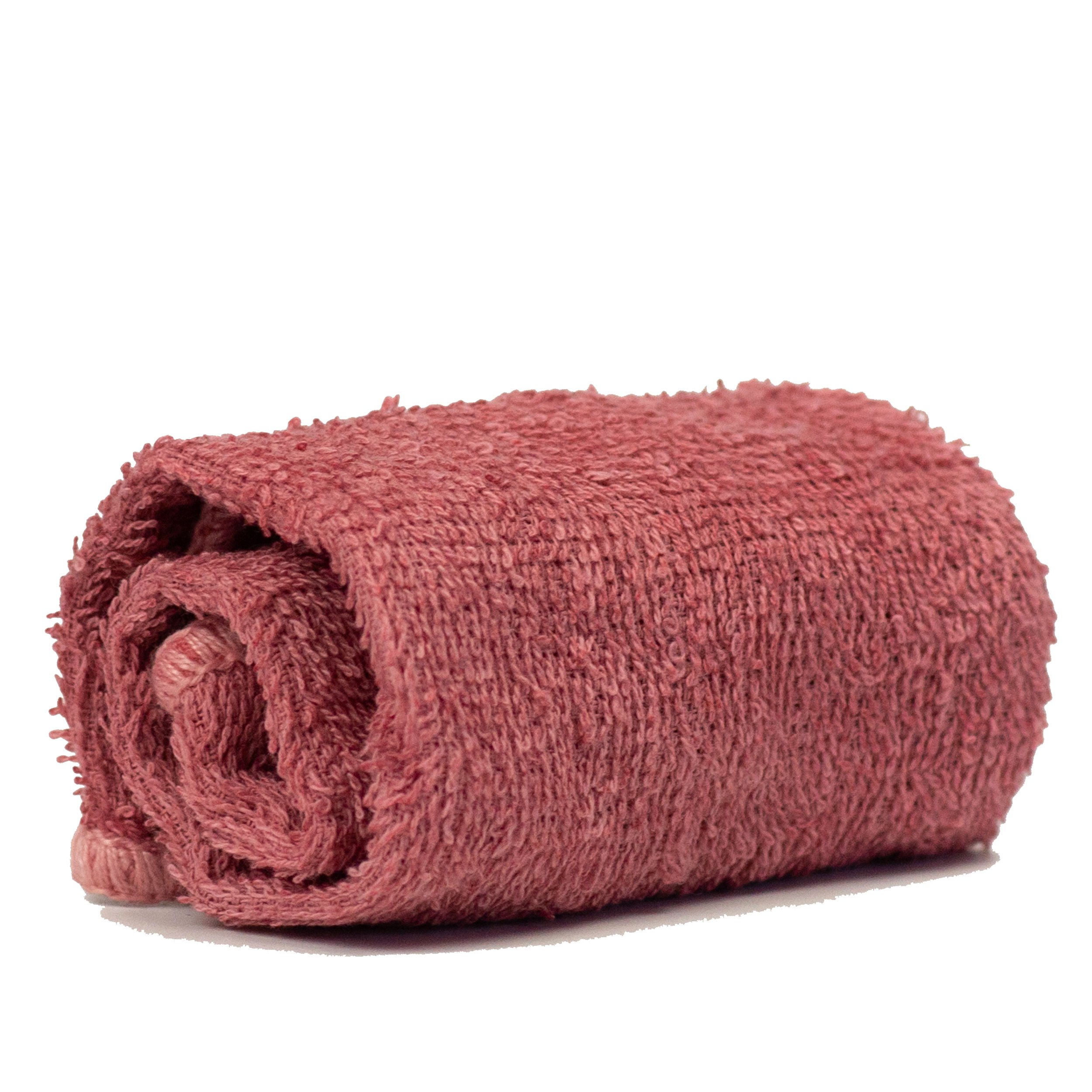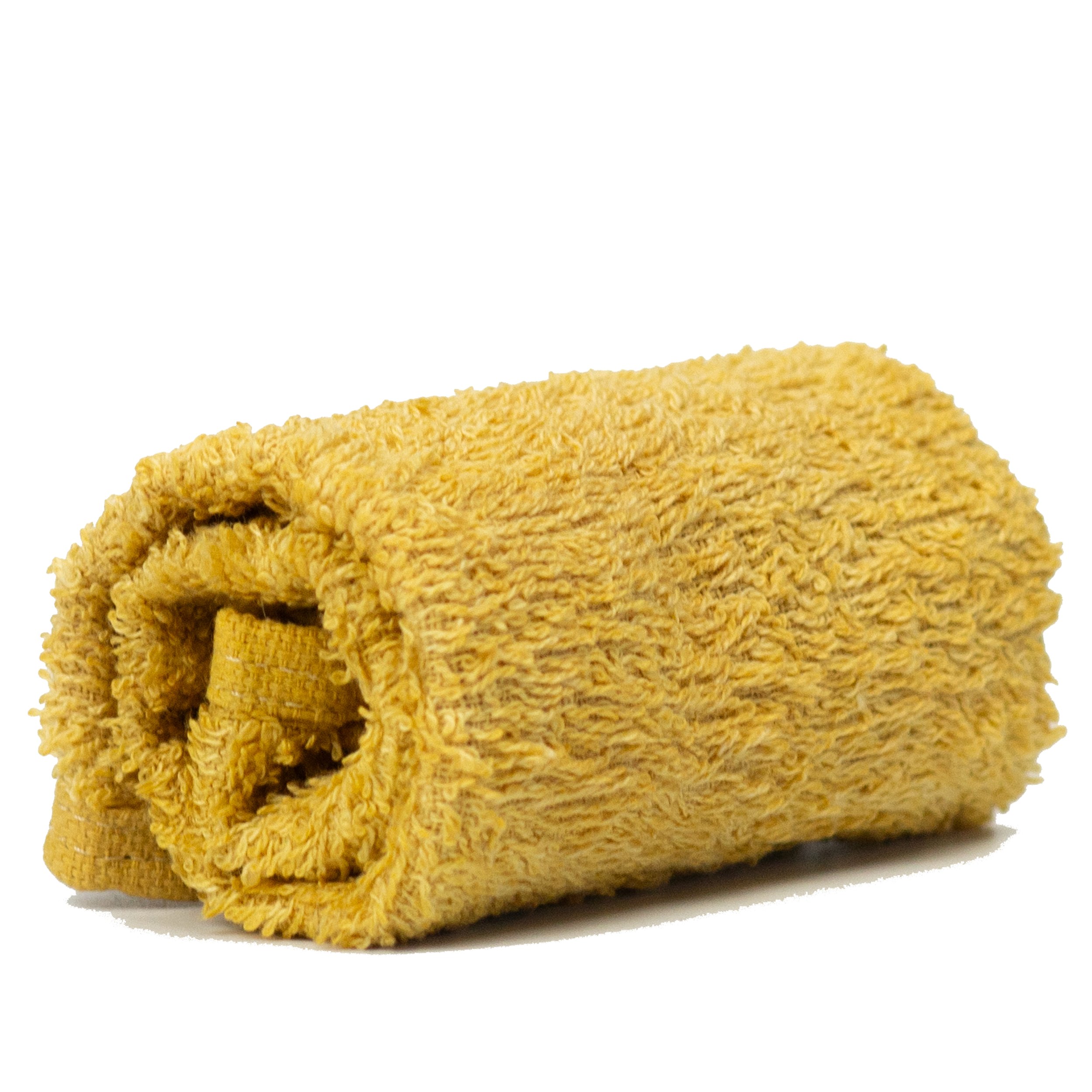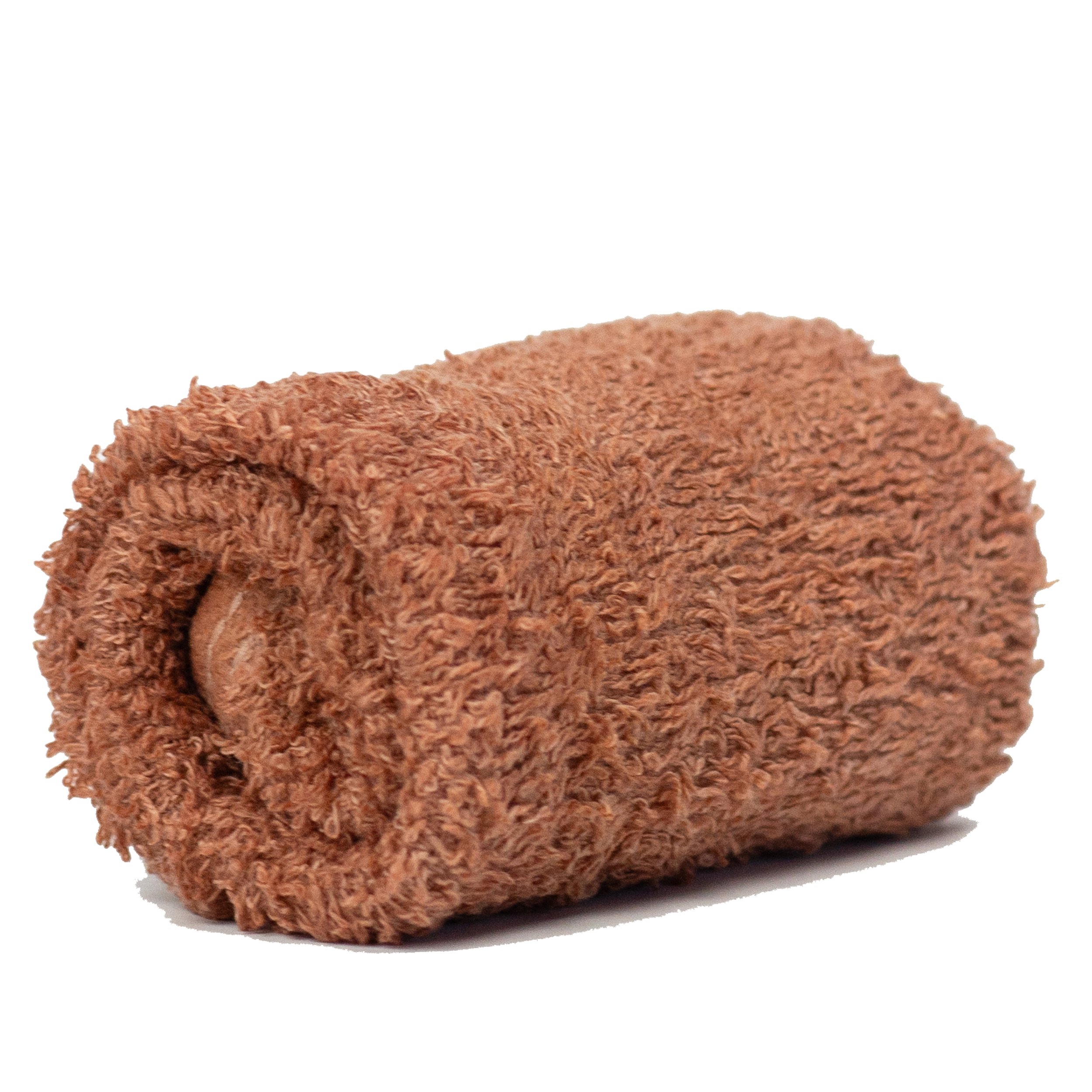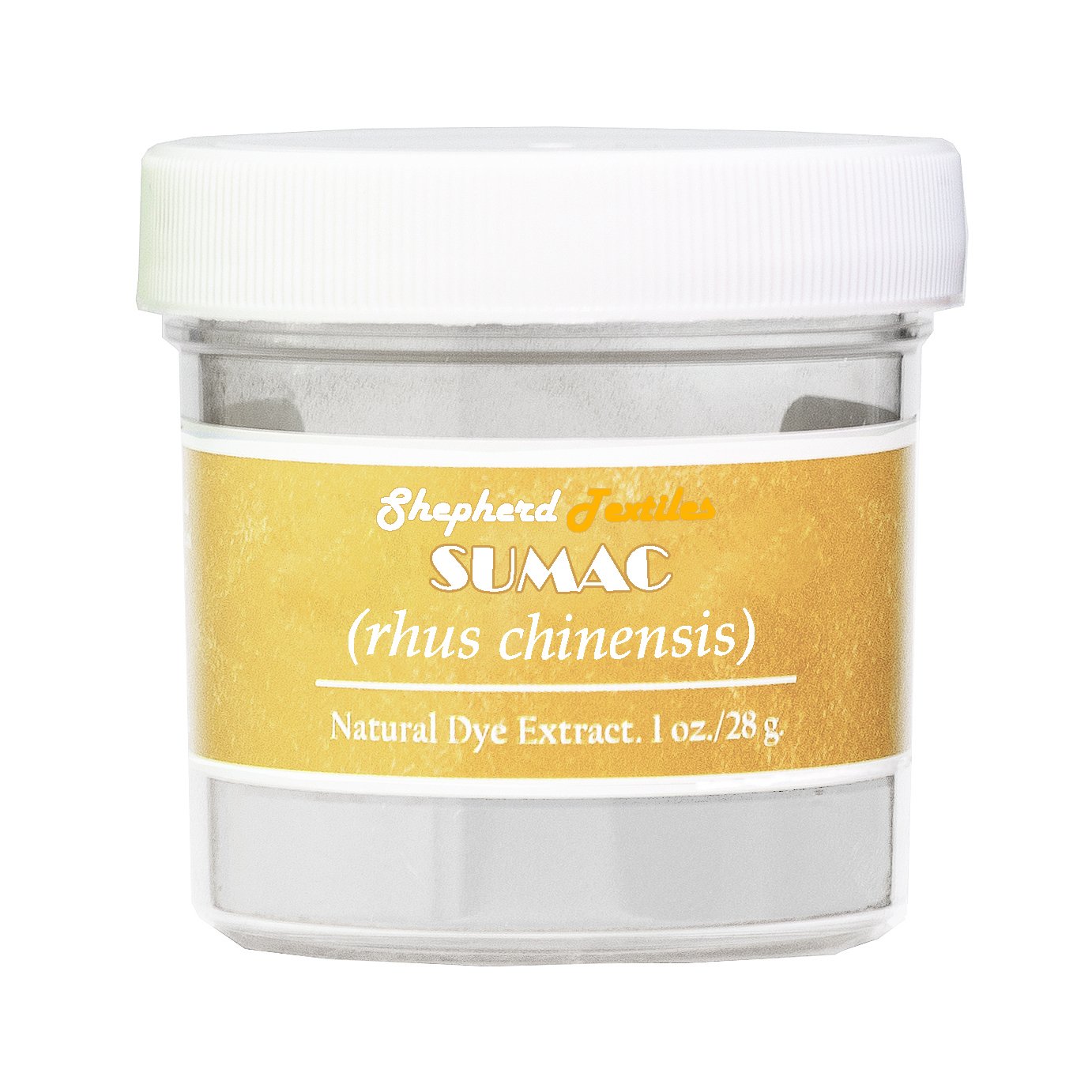 Image 1 of 2
Image 1 of 2

 Image 2 of 2
Image 2 of 2



Sumac Extract
Shepherd Textiles Sumac Extract is made from gallnuts that form on the bark of the Chinese Sumac, rhus chinensis. The Chinese Sumac is a small tree that grows throughout East Asia, especially in southern China and Sichuan province. Gallnuts form on the bark when the tree is attacked by aphids; the galls are extremely rich in astringent tannins, which discourages insects from further preying on the tree’s sap. Sumac gallnuts are particularly valued because they produce the clearest of all natural tannins. Sumac Extract is used to tan cotton before mordanting it to make it receptive to metal salts like alum, copper, and iron; cotton is otherwise resistant to mordanting and dyeing with natural colors. Because it is so clear, Sumac Extract will not change the hue of the final color, and at Shepherd Textiles we use Sumac Extract almost exclusively when dyeing cotton.
To use, dissolve 5%-10% weight-of-fabric (WOF) in a dye pot full of warm water, add scoured cotton, and bring to 190F for 30 minutes. Remove from heat, cover, and let steep overnight. The next day, remove the cotton and gently squeeze out the excess liquid but do not rinse, as the tannins are not yet fixed and can be washed out. Before the cotton dries, mordant with alum at 12% weight-of-fabric, plus 2% soda ash added to neutralize the mordant bath; alternately, mordant with 2% iron or 2% copper. The results, compared to dyeing un-treated cotton, can be dramatic.
Product of France. Produced by a GOTS (Global Organic Textile Standard) certified manufacturer.
Shepherd Textiles Sumac Extract is made from gallnuts that form on the bark of the Chinese Sumac, rhus chinensis. The Chinese Sumac is a small tree that grows throughout East Asia, especially in southern China and Sichuan province. Gallnuts form on the bark when the tree is attacked by aphids; the galls are extremely rich in astringent tannins, which discourages insects from further preying on the tree’s sap. Sumac gallnuts are particularly valued because they produce the clearest of all natural tannins. Sumac Extract is used to tan cotton before mordanting it to make it receptive to metal salts like alum, copper, and iron; cotton is otherwise resistant to mordanting and dyeing with natural colors. Because it is so clear, Sumac Extract will not change the hue of the final color, and at Shepherd Textiles we use Sumac Extract almost exclusively when dyeing cotton.
To use, dissolve 5%-10% weight-of-fabric (WOF) in a dye pot full of warm water, add scoured cotton, and bring to 190F for 30 minutes. Remove from heat, cover, and let steep overnight. The next day, remove the cotton and gently squeeze out the excess liquid but do not rinse, as the tannins are not yet fixed and can be washed out. Before the cotton dries, mordant with alum at 12% weight-of-fabric, plus 2% soda ash added to neutralize the mordant bath; alternately, mordant with 2% iron or 2% copper. The results, compared to dyeing un-treated cotton, can be dramatic.
Product of France. Produced by a GOTS (Global Organic Textile Standard) certified manufacturer.
Shepherd Textiles Sumac Extract is made from gallnuts that form on the bark of the Chinese Sumac, rhus chinensis. The Chinese Sumac is a small tree that grows throughout East Asia, especially in southern China and Sichuan province. Gallnuts form on the bark when the tree is attacked by aphids; the galls are extremely rich in astringent tannins, which discourages insects from further preying on the tree’s sap. Sumac gallnuts are particularly valued because they produce the clearest of all natural tannins. Sumac Extract is used to tan cotton before mordanting it to make it receptive to metal salts like alum, copper, and iron; cotton is otherwise resistant to mordanting and dyeing with natural colors. Because it is so clear, Sumac Extract will not change the hue of the final color, and at Shepherd Textiles we use Sumac Extract almost exclusively when dyeing cotton.
To use, dissolve 5%-10% weight-of-fabric (WOF) in a dye pot full of warm water, add scoured cotton, and bring to 190F for 30 minutes. Remove from heat, cover, and let steep overnight. The next day, remove the cotton and gently squeeze out the excess liquid but do not rinse, as the tannins are not yet fixed and can be washed out. Before the cotton dries, mordant with alum at 12% weight-of-fabric, plus 2% soda ash added to neutralize the mordant bath; alternately, mordant with 2% iron or 2% copper. The results, compared to dyeing un-treated cotton, can be dramatic.
Product of France. Produced by a GOTS (Global Organic Textile Standard) certified manufacturer.


